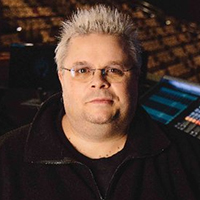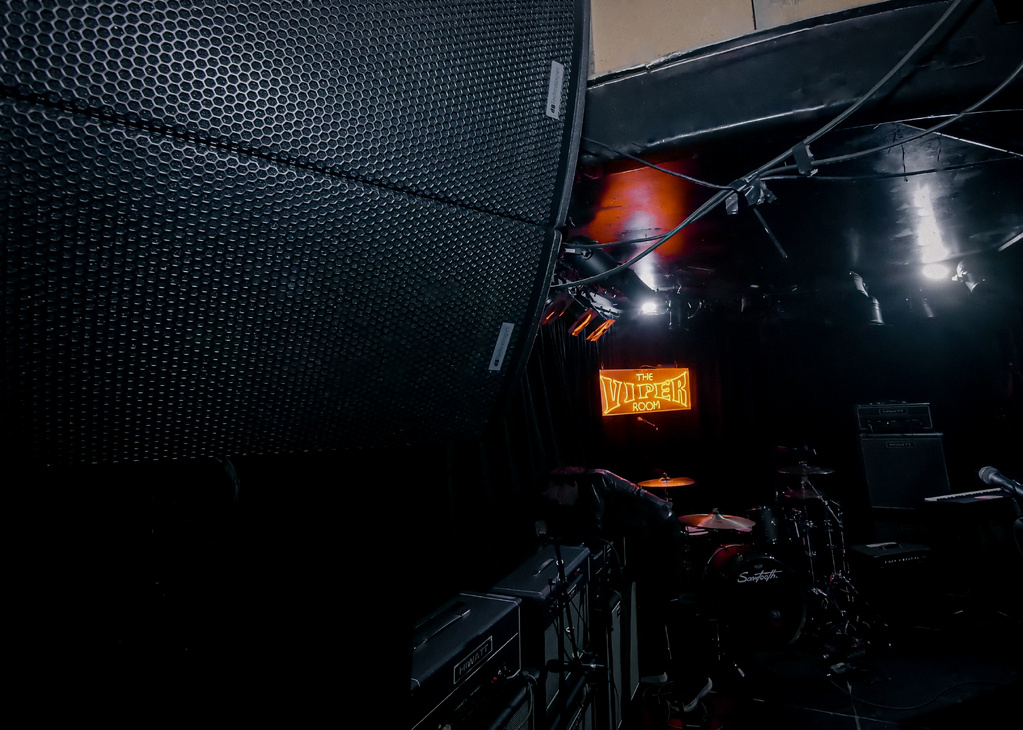The longer I’ve worked in the production world, I’ve come to rely on these three essentials: God’s grace, the power of details, and organization. This doesn’t prevent the inclusion of several hundred other items, but these are the ones that almost always rise to the top.
The degree of organization I’m describing in this list is a dynamic process; one that has scaled up over the years in relation to the complexity of my job.
Calendars
Right from the start of any project, it all begins with two different types of calendars. A massive production calendar encompassing one wall in my office and my iCal calendar program that is synchronized with all my various computing devices.
The wall calendar is comprised of some recycled tempered glass panels from one of our remodel projects and just happens to serve as a great marker board calendar. With this I can keep 3 months displayed at all times and erase a month as it expires. This setup isn’t just convenient—it’s become quite necessary for me to visualize the big picture of our production schedule. It’s also an exceptional way to catch scheduling and production conflicts. [read more of my thoughts on how calendars affect our Christmas planning here.]

As for iCal, I’ve been using it for about 15 years and it has become the mainstay of almost all of my production situations since. Besides its ease of use, it allows me to create color-coded individual calendars and display or hide them as needed. After using almost every calendar app out there, this is the best way I’ve found to keep our master production schedule, individual schedules (for myself and the staff), and all the other odds and ends layered all in one place.
Another plus is that I can send any calendar’s URL to anyone else using iCal on a computer, iPad, and/or smartphone and it will always stay updated and synced to my original. Most of our COTMProd staff and interns use Apple products so this has been an incredibly useful tool.
Team Projects And Task Lists
A year or so ago, our Creative Department began using a program/app called Basecamp to keep everyone up to date for our events and projects. Not only did this make sense, but it was an immediate improvement to our process, so I decided to create a similar account just for COTMProd. It’s made a big difference in how our team communicates and allows us to all stay on the same page while decreasing our need for meetings.
Consider this: sometimes the most colossal waste of time for a busy team is an unnecessary meeting. Basecamp also allows me to track projects with content/input from every person, as well as manage to-do items that reference individual projects and/or specific people. It’s easy for the team to use, too, as they can use it from any computer, iPad, or smartphone—way cool for a team on the run.
Personal Task Lists
For my personal task management, I use a program/app called Things. I cannot stress how great this program has been to keep all my thoughts, tasks, blog ideas, upcoming reminders, etc. organized and scheduled. Even though this is not a calendar-type application, one of its main features is that you can schedule future tasks to remain hidden until whatever day you choose. It’s done wonders for me as I can jot down anything I want, schedule a date for it to show back up on my list, and then forget about it.
Even though I’ve incorporated some useful organizational programs into my routine, I’ve had to learn how to harness that power or I am lost. Understand, developing the discipline to stay vigilant in using these mechanisms and devices to my advantage did require some commitment on my part. Taking a few minutes here or there to pause and make a few notes, log some data, or schedule something did take some getting used to. That said, once I started seeing how much brain power I gained back by not having to remember everything, my capacity for handling more information increased dramatically.
The longer I work in the production world, I’m convinced of this: I’ve never run across a successful production professional that runs their career in a disorganized manner. Think about it: the ones doing the best work have usually embraced technology and are using it to their COMPLETE advantage.
This principle of organization has been one of the biggest ways for our production team to serve the needs of the church. As our creative team dreams, develops, and conceptualizes what we’re going to do, at some point they have to hand over their plans and ideas to the production side. Having an organized situation already in place, we’re able to incorporate these plans into our system where they are transformed into something tangible and sensible, no matter how crazy the idea. Developing a higher level of organization is easy to achieve—it doesn’t cost a cent, but the payback can be immeasurable.
You can read and comment on the original article here.




















